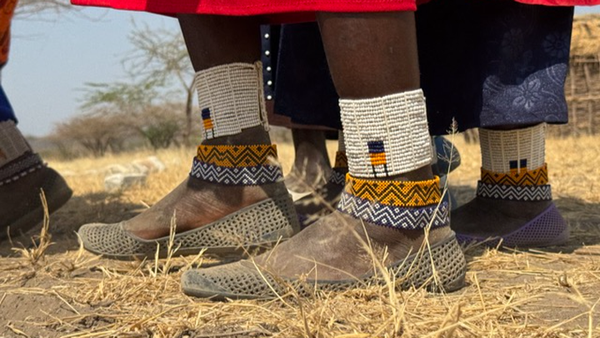Breaking the Cycle: Confronting the Surge of Racism and Hate in Britain
Racism and Islamophobia surge in Britain as far-right mobs spread violence. It's time for decisive action against this hatred, not just condemnation.

Access the Audio Read version of this article directly on Spotify for Podcasters.
This growing tide of racism and Islamophobia, often masked as patriotism, is both appalling and infuriating.
TW: violence, murder
For the past week, racist mobs have raided the streets and homes in several British neighbourhoods, spreading violence and hate towards Muslims—a movement that quickly evolved into an effort to rid Britain of all immigrants, particularly people of colour. The riots began after a teenager allegedly stabbed and killed three girls at a school in Southport. The suspect, a young British man, was initially falsely associated with the Muslim community and used as a pawn to initiate and spread racist claims against Muslims. This quickly escalated, with far-right groups attacking anyone who appeared Muslim or non-white, vandalising mosques, and targeting locations housing immigrants.
This raises so many questions. How did we get here? What is the double standard for repressing these riots? I can’t stop thinking that if the rioters had been Black or Brown, we would have already seen so much blood and arrests on the streets. Why isn't the government responding more firmly to these terrorist acts when they’ve been so quick to take down peaceful protesters for Palestine?
I can’t help but worry about the state of our world, and the burst of hate and fear people carry against people of colour and religious minorities. The last few years have been marked by a disturbing pattern of violence and hatred: from the killings of Black people to attacks on Asian communities, and the ever-increasing hostility towards Muslims. This is without mentioning the misrepresentation of those advocating for Palestine since October last year, which further exacerbates the situation. This growing tide of racism and Islamophobia, often masked as patriotism, is both appalling and infuriating.
It is deeply disheartening to have to continuously justify one's existence and contributions in a society that should be inclusive and welcoming to all people when the slightest act of violence is automatically assigned to the whole community. The current rise in hate crimes and systemic racism demands more than just lip service; it calls for real, actionable responses. Yet, instead of addressing the core issues of racism and terrorism, politicians and the media often engage in rhetoric that unfairly, wrongfully and irresponsibly blames immigrants and people of colour, spurging the already existing hostile climate against immigrants. This blame-shifting only perpetuates the cycle of prejudice and violence.
It's exhausting to carry the weight of others' hatred and to confront widespread anti-Muslim, anti-Black, anti-Brown, and anti-Asian sentiments daily—not to mention countless other offences. The focus should not be on personal check-ins—while important for many and vital for those personally attacked. Rather, we need to pressure governments and media to take decisive action against the racists and white supremacist terrorists who are fuelling this violence. It's time to stop the endless loop of justification and scrutiny solely focused on marginalised communities.
Systemic racism and Islamophobia are pervasive issues that require robust action from our leaders. It's insufficient to simply condemn these actions; political leaders and authorities must explicitly label white supremacist actions for what they truly are. Offering mere sympathy to people of colour is no longer acceptable. Historical patterns demonstrate that the Global Majority is continually underestimated and overshadowed unless we are used as political pawns.
Darain Faraz, co-founder of People Like Us, expressed his dismay on LinkedIn: “This kind of hatred has no place in our society. The thugs who perpetuate this in the name of patriotism—let's be clear—this isn't patriotic; it's racist, Islamophobic, and illegal.”
His brother and co-founder of People Like Us, Sheeraz Gulsher, echoed similar sentiments, criticising the lack of response from the press and political leaders: "Islamophobia and the demonisation of migrant groups have become so normalised that blatant racism often goes unchallenged.”
Again, I continue to question myself: we are the majority. We are the sensible ones. How is it possible in this day and age to still confront such levels of hatred? How are we supposed to remain mentally fit in these times of crisis? I find comfort in those close to me, who recognise their true powers: kindness, empathy, and openness.
Many other voices within my social communities have raised similar concerns - people of colour and allies alike, from individuals, and entrepreneurs to NGOs, with terms used such as ‘ashamed to be British today’, ‘where’s the outrage?’, ‘white British criminals’, ‘double standards in how crimes are treated’ and more. A post from Leyya Sattar, award-winning Founder of Other Box, offers guidance to companies on how to support their employees of colour during these tumultuous times, while others in forums and on social media offer various tools to stay safe in times of crisis.
The choice before us is clear: either we embrace inclusivity and justice for all, or we continue to allow these racist and xenophobic ideologies to flourish. There is no middle ground, no room for excuses. The time for action is now. We need justice, safety, and peace. Until our government and the British media - I’m looking at you The Sun, Daily Mail, The Telegraph - begin treating everyone fairly and equally, these racist mobs will only grow more powerful and uncontrollable.





